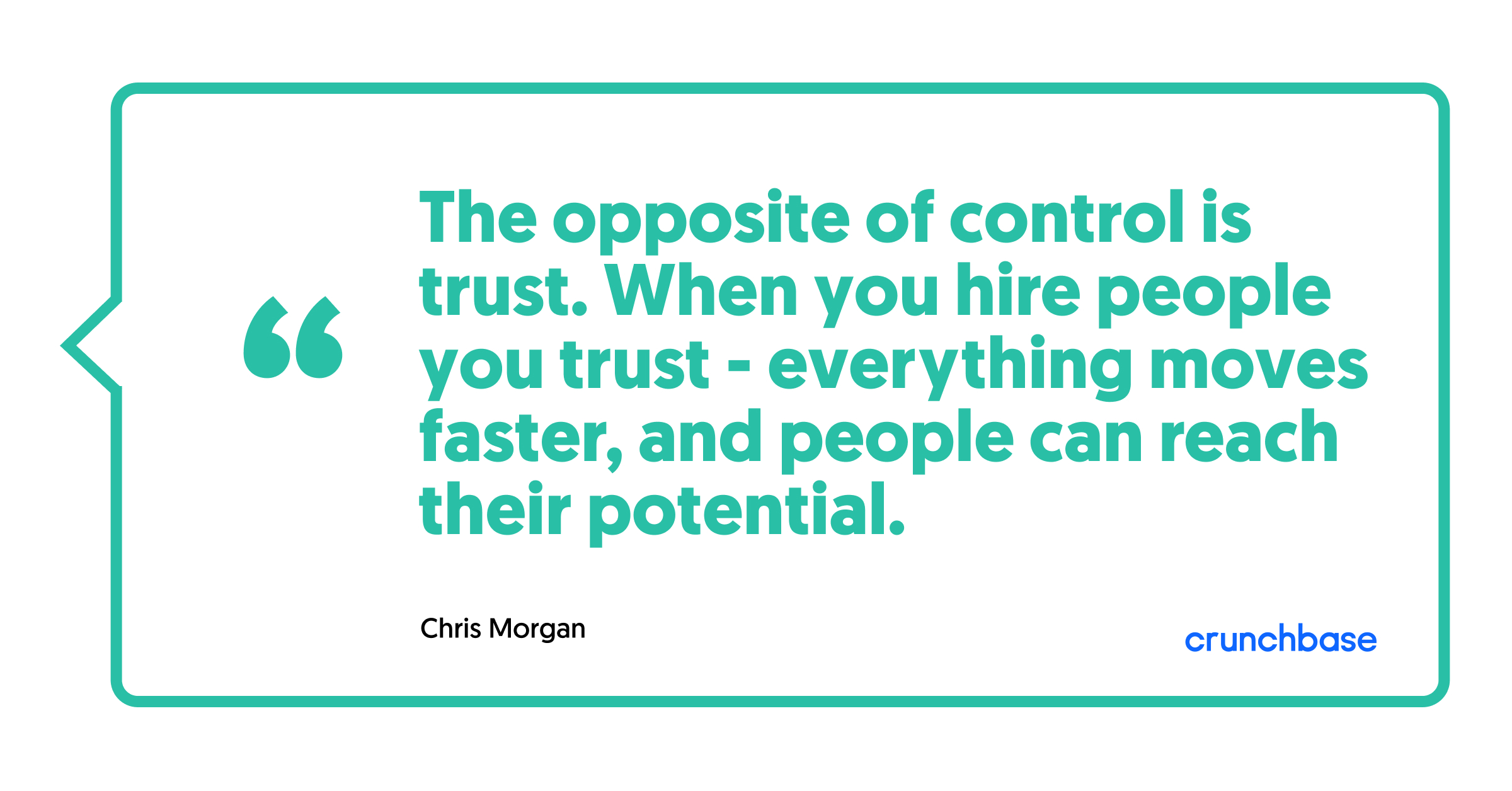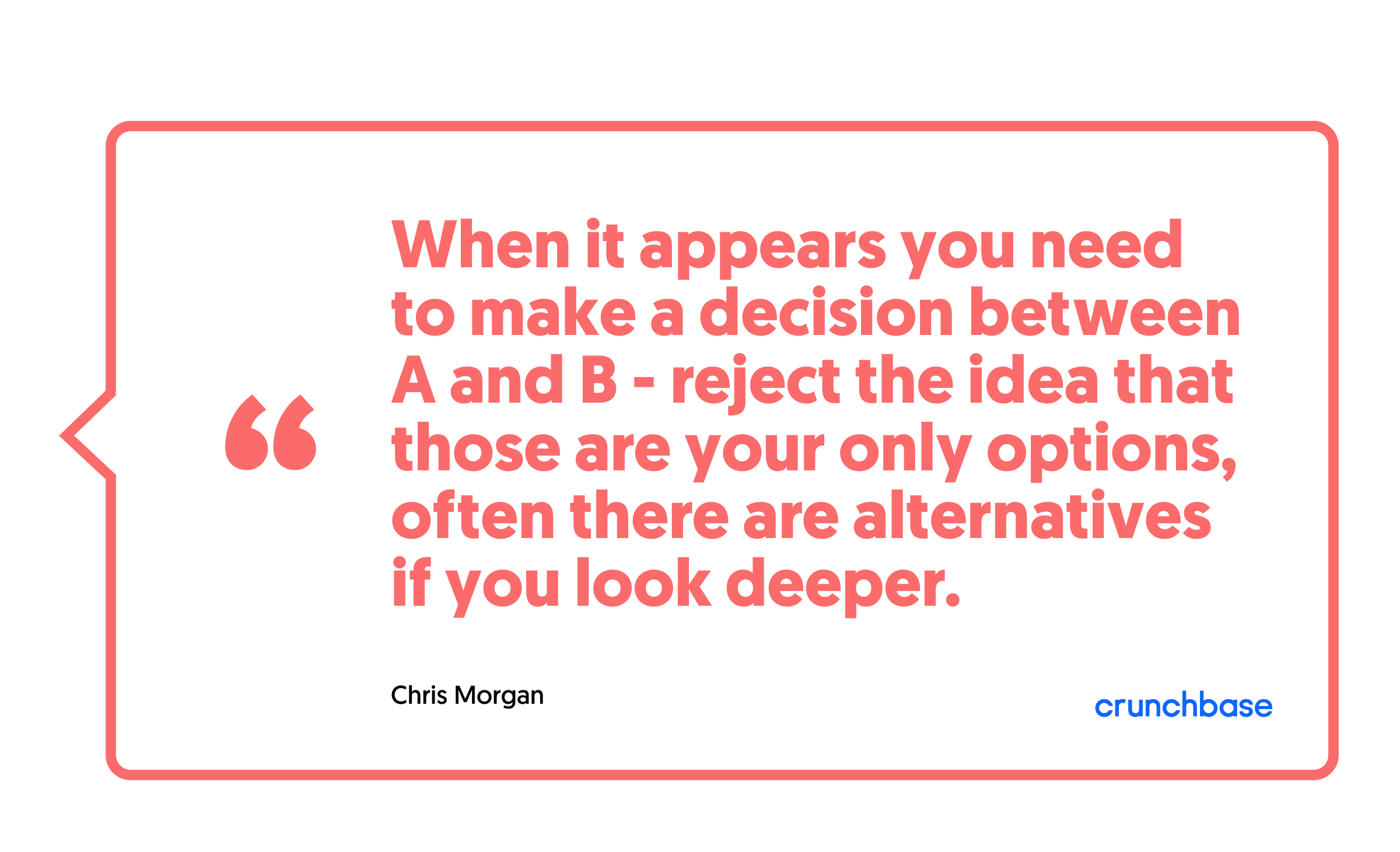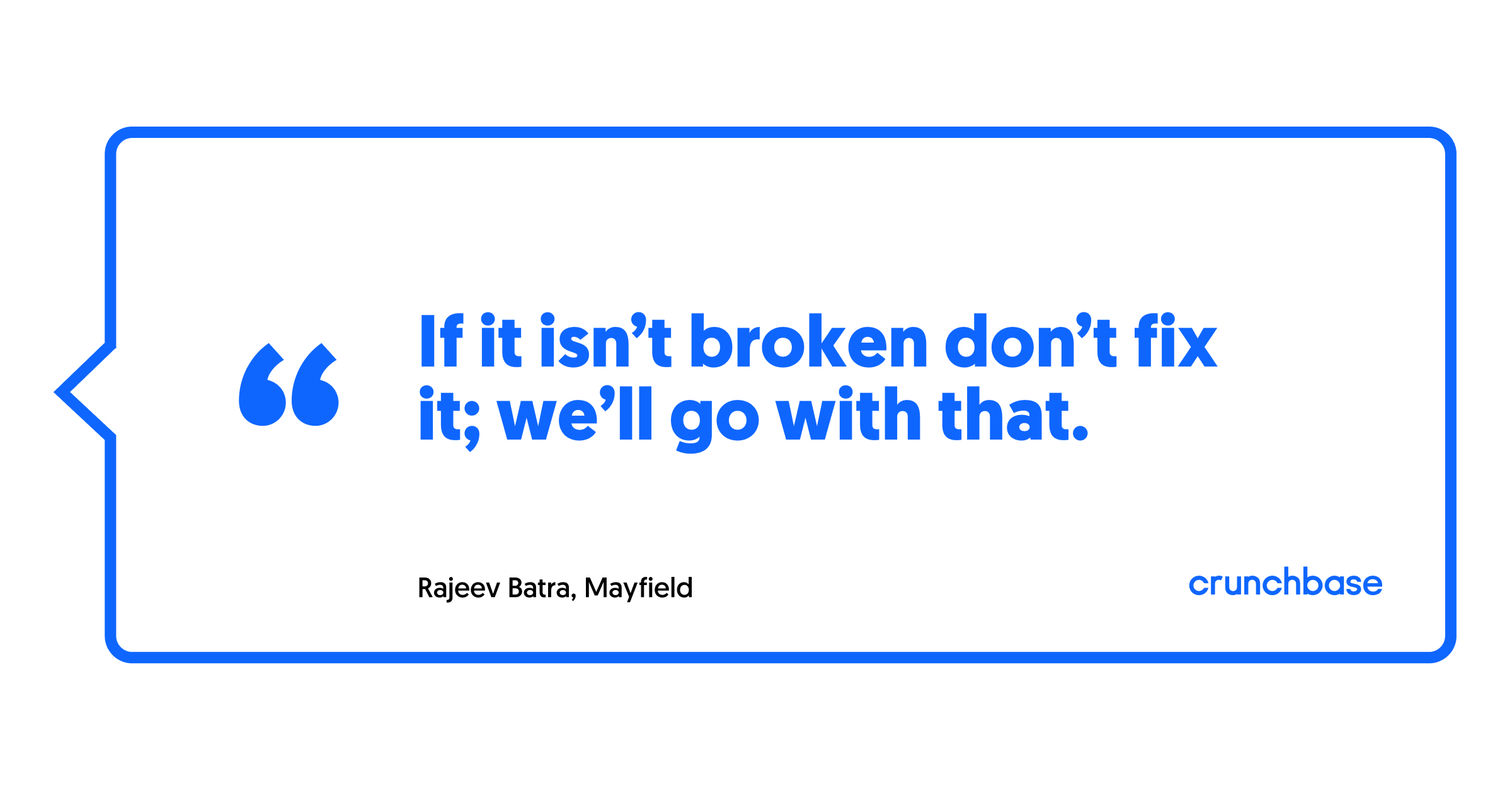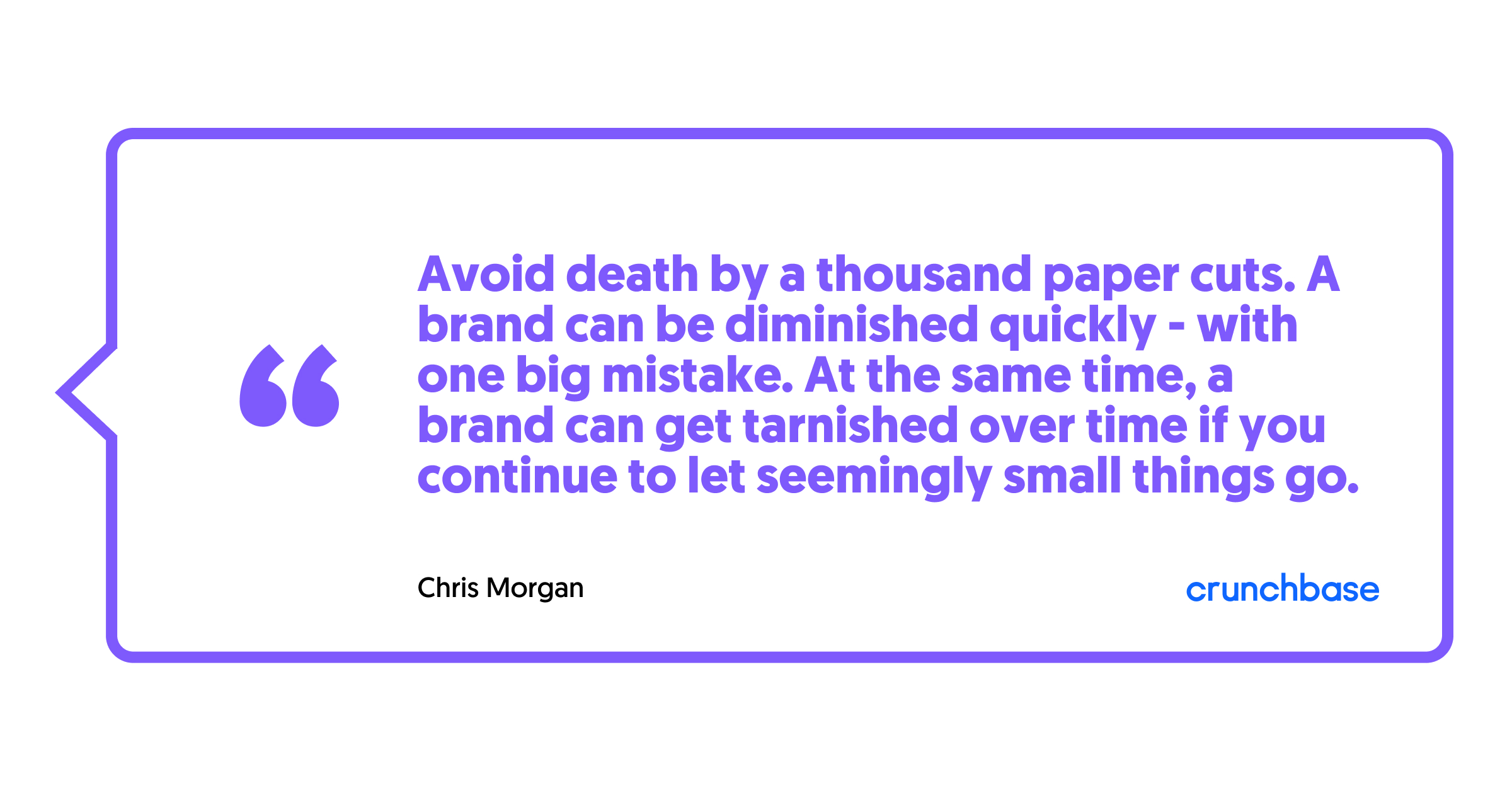Interview with Chris Morgan, CRO at MOAT (acquired by Oracle) hosted by Rajeev Batra, Enterprise Investor at Mayfield
Chris’ Background
Chris Morgan is the CRO of Moat, which was acquired by Oracle in 2017. As part of the Oracle Data Cloud’s Audience, Context and Measurement solution, Moat powers trusted measurement, analytics, and intelligence for the world’s largest brands and publishers. Prior to Moat, Chris held various leadership positions at Hitwise (acquired by Experian), a data and analytics business focused on providing marketing intelligence to brand advertisers.
Foreword
I’ve had the pleasure of knowing Chris Morgan for about seven years now. He joined MOAT, a Mayfield investment that was later acquired by Oracle for more than $800M, as their first VP of Sales. He was there for the early days when they had very little revenue and had just launched their first SaaS product – helping scale the company to an over $100M annual run rate. Along the way he was promoted to CRO.
While it helped that Chris had such a great product, thanks to Jonah & Noah Goodhart, the founders of MOAT, Chris really figured out one of the most efficient and repeatable go-to-market motions that we have seen in SaaS. The company barely went through $20M in building a near $100M annual run rate business.
One of his hallmarks as a leader is building an environment where people feel empowered and trusted to do amazing things. Therefore, it’s no surprise that he also deeply understands and appreciates the value of brand, not just for a product or a company, but how it manifests itself in how the company actually sells its product. After all, salespeople are everyday ambassadors of a company’s brand in front of customers. This is a very unique and powerful perspective in a sales leader.
Rajeev: What are you known for? What is the core insight you’ve developed in your career?
Chris: I’m known for building teams where the core principle is trust. Hire people where there is mutual trust and shared values, outline a vision for where we are going, why it’s a worthwhile cause – and let them do what they do. Said another way, “the opposite of control is trust.” When you hire people you trust – everything moves faster, and people can reach their potential.
At the end of the day, I’m trying to create a platform and environment where people have the opportunity to do their best work, feel fulfilled and appreciated, and help each other improve – I believe this creates the best outcomes.
Rajeev: Well said Chris. Trust is the ultimately antidote to control, especially when you realize that the only thing you can control is yourself.

Rajeev: Name one learning from a mentor that has influenced you.
Chris: Jonah and Noah Goodhart, co-founders of Moat: While I’ve picked up many learning from Jonah and Noah over the past seven years, here is a key concept: When it appears you need to make a decision between A and B – reject the idea that those are your only options, often there are alternatives if you look deeper. Once you’ve decided – move fast and with conviction. Maintain a positive attitude at all times, and have relentless attention to detail.
Rajeev: That’s a great one Chris. You know, when we first met Jonah & Noah, we talked about the business model of MOAT and how SaaS was a viable business model for the company as opposed to the traditional adtech routes. Once convinced of that, MOAT really doubled down on being a best-in-class SaaS company.

Rajeev: What is your favorite book and why?
Chris: “Not Fade Away: A Short Life Well Lived.” This book was recommended to me over 10 years ago – it’s about a successful entrepreneur that needs to confront his mortality at a young age after a cancer diagnosis. It’s a powerful reminder that life is short and to focus on what matters.
Rajeev: Yes indeed, being present in the here and now is something I’m working on. Meditation helps.
Rajeev: What is your favorite metric?
Chris: Number of new opportunities created, per sales rep, per month.
Across all the GTM teams I’ve built, I’ve always focused at the core on building a new logo machine. This metric allows you to understand: Are you creating enough pipeline to achieve your revenue goal? Each rep has a new opportunity KPI that’s measured monthly. If you don’t create new opportunities, you can’t close deals. New opportunities are the lifeblood of a business.
Rajeev: I couldn’t agree more – pipeline, pipeline, pipeline. The new logo point is critical. Too many startups start harvesting their existing companies too early in the name of customer success and don’t focus on planting new seeds.
Rajeev: Can you share 3 key takeaways on the topic you spoke about at our 2019 Leadership & Life Summit: “The Role of Brand in a Sales Process”?
Chris:
- Brand matters. Over time, first mover advantage, or tech differentiators slip away – you need a brand with a deep moat around it, where customers buy because they trust your brand, they have an emotional connection to your brand.
- Everything you do is a reflection of your brand. Brand isn’t just your logo or your packaging, it’s the sum of every interaction anyone has with your company. Your people are ultimately the purest representation of your brand. Your teams need to think about that in every single interaction they have with a client, prospect, vendor – anyone they interact with.
- Avoid death by a thousand papercuts. A brand can be diminished quickly – with one big mistake. At the same time, a brand can get tarnished over time if you continue to let seemingly small things go.
Rajeev: These insights are gold. I’m glad you’re getting to share this broadly with the community. I’m going to share these shamelessly with others and will attribute them back to you.
Rajeev: What is your advice for someone going from 0-1 (still figuring things out – zero to a couple million ARR), 1-10 (figured it out, beginning to scale and achieving finished product market fit), and 10-100 (full on scaling mode)?
Chris:
- From 0-1 : Meet/demo 500 prospects as quickly as possible, they’ll tell you what they need.
- From 1-10: Make it repeatable, develop a process for everything. Focus on the absolute core essentials – hire people that can “build stuff” – engineers and “sell stuff” quota carrying sales reps. Everything else can wait.
- From 10-100: Develop your next group of leaders, you’re going to need them!
Rajeev: You have to get product market fit, make things repeatable, and build bench strength. Thanks for saying this – in a startup either you’re building or you’re selling/making customers happy.
Rajeev: Are you willing to make a go-to-market prediction we can hold you to for 2020? I must admit, I’m not a big fan of predictions, but I thought it’d be fun to ask anyhow.
Chris: My prediction is – what’s worked will continue to work: Have a great product that provides real utility, and keep innovating. Deliver that product through a narrative and story that captures your audience’s attention – and build a great team to execute.
Rajeev: Okay Chris, I’ve come to realize that the more I ask people who have done anything real to make a prediction, they tend to make safer ones like yours. If it isn’t broken don’t fix it; we’ll go with that.

Rajeev’s interview with Chris Morgan is part three of the Mayfield series, “From Good to Great: How Go-To-Market Leaders Transform B2B Software Companies.” In this series, we will highlight ten breakout go-to-market leaders who will share their stories directly. The series will feature non-obvious insights on key topics such as category creation, product-market fit, the role of culture in elevating brand, and scaling community-oriented marketing. Stay tuned!
Find this interview interesting? Check out previous interviews in this series:






